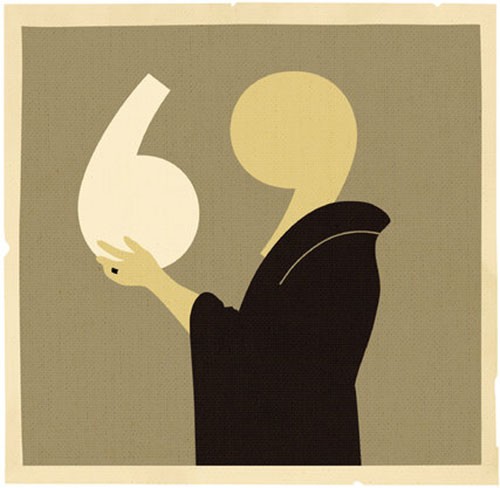A friend just sent me a copy of a book entitled Attitude Is Everything, by Jeff Keller. The subtitle reads, “Change Your Attitude … Change Your Life!” and the book’s introduction leads off with this famous quotation:
“The greatest discovery of my generation is that human beings can alter their lives by altering their attitudes of mind.” — William James
… And right there, the author lost me.
Now, I don’t know Mr. Keller, nor anything about him, and have not yet read any further in his book (which I do intend to do at some point). And I have no doubt that he has much wisdom, experience, and value to offer the reader. What’s more, I strongly think the core idea contained within the twenty words of that famous quotation are wise indeed, and I agree with it completely.
It’s just that William James never said it.
At least, not as far as I’ve been able to determine … and I’ve tried. Oh, how I’ve tried.
I recently worked on a book for someone (as yet unpublished) who happens to adore that quote, and it played a significant part in the story. I was instantly suspicious: it’s a great line, but it just doesn’t sound like something an erudite nineteenth-century philosopher and Harvard professor, and the man often referred to as the “father of modern psychology,” would say.
It sounded more like something James Allen (As a Man Thinketh) or some other early twentieth-century positive-thinking, self-help writer would have said.
I started searching. And searching. And searching. This pithy quote appears in a zillion places on the Internet, frequently attributed to James, but rarely with an actual source. I did find one scholarly-seeming paper that quoted it and gave James’s The Principles of Psychology as the source, even giving a page number (290), though without identifying the edition cited.
So I bought a copy of James’s The Principles of Psychology—on Kindle, so it would be fully searchable. I fully searched it. No such passage. Nothing even close. I searched as many terms and phrases as I could think of that might express even a remotely similar concept.
Nuttin.
In my online travels I also noted that the quotation in question is even more frequently attributed to one James Truslow Adams, a turn-of-the-century amateur historian who served as U.S. delegate to the 1918 Paris Peace Talks and (amateur status notwithstanding) even earned a Pulitzer for his writing. Cool! Truslow Adams seemed like exactly the kind of writer who would say something like this.
But I struck out there, too — couldn’t find a single solid, credible Truslow Adams source for it, either.
Then I discovered that James Truslow Adams had written a biography of, guess who? Williams James. Bingo! I figured, maybe Truslow Adams, in summing up or paraphrasing something James actually had said or written at some point, wrote this line in his biography. Could that be where the whole thing started?
So I ordered a copy — long out of print, existing in hardcover only. The book finally arrived (a 1937 edition, I think it was) … and when I opened the package, I found a biography of … Henry Adams. At which point I quoted an expression which I can confidently attribute to a late-twentieth-century nuclear power plant worker named Homer Simpson:
D’oh!
And this, Dear Reader, is where I left off. I don’t know if the book was listed wrong on Amazon, or the vendor picked and packed the wrong volume in sending it to me, or what. I declared my quest over. I had a life to get back to (wife, dog, meals, interacting with the rest of humanity, those sorts of things). I ended up providing the quotation in the book and referring to it as “attributed to the Pulitzer Prize–winning historian James Truslow Adams.”
If you can find a verifiable source for the line, I’m eager to hear about it. Meanwhile, I’m adding it to my pile of excellent quotations that are, at this point, literary orphans.
Meanwhile, here’s another quotation, saying something roughly similar to the idea in James/Truslow-Adams/Anonymous’s sentence, that I can verify:
“You’ve heard the expression, ‘Go looking for trouble and that’s what you’ll find’? It’s true, and not only about trouble. Go looking for conflict, and you’ll find it. Go looking for people to take advantage of you, and they generally will. See the world as a dog-eat-dog place, and you’ll always find a bigger dog looking at you as if you’re his next meal. Go looking for the best in people, and you’ll be amazed at how much talent, ingenuity, empathy and good will you’ll find.
“Ultimately, the world treats you more or less the way you expect to be treated. … In fact, you’d be amazed at just how much you have to do with what happens to you.”
These words were spoken by the business guru Pindar, in The Go-Giver — and I know those words came from his mouth, because Bob Burg and I put them there.


At which point I quoted an expression which I can confidently attribute to a late-twentieth-century nuclear power plant worker named Homer Simpson:
D’oh!
—–
And, that one we KNOW is attributed correctly (Matt Groening’s shadowy influence notwithstanding).
That made me L! In fact, it made me do so OL!
“A great discovery of every generation should be that human beings can alter their lives by redirecting their attitudes.”
Possibly Pindar could offer a like quote in a future Go-Giver edition?
Congratulations on the success of The Red Circle!
Thanks, Mark! And thanks so much for your note card — it was a pleasure to see you at the Go-Giver Retreat in West Palm!